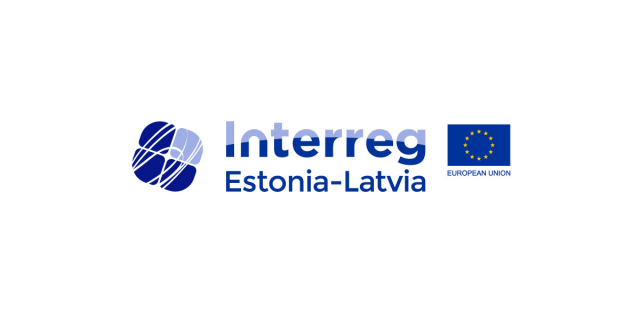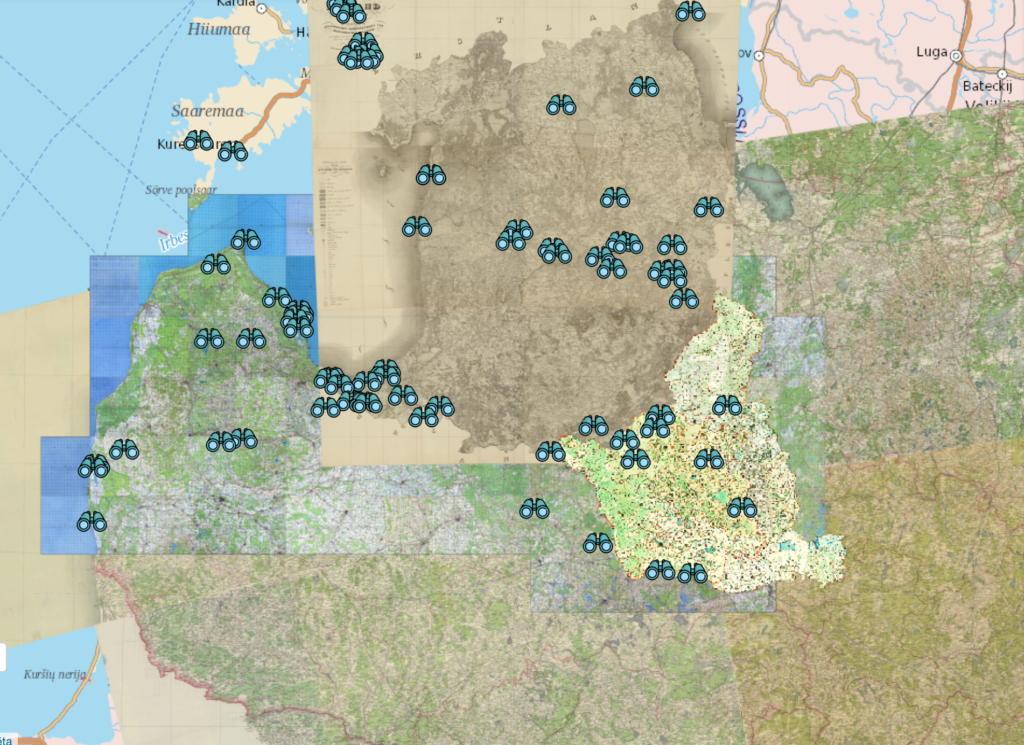At the request of the Ventspils municipality project “Development of small ethnic cultural spaces as a tourism destination” ‘UNESCO-tourism’”, the UL Livonian Institute studied how the elements of the Livonian cultural space are used in business on the Livonian coast. The survey covered the territory from Oviši village in Tārgale parish to Melnsils village in Roja municipality.
The aim of the survey was to find out whether entrepreneurs use and offer to get acquainted with the elements included in the description of the Livonian cultural space on the historical Livonian coast, as well as to find out those carriers of cultural heritage that are able to provide local entrepreneurs (more broadly – every tourist) with the necessary knowledge about the Livonian cultural space as a special and specific component of this tourist destination.
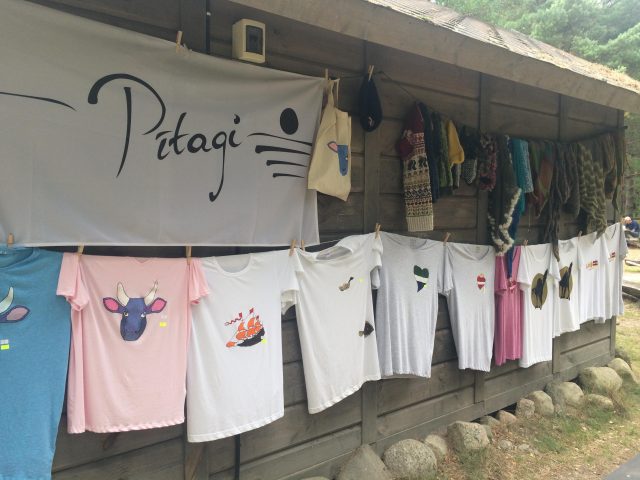
Photo by Gunta Kļava
The surveyed almost 20 entrepreneurs represent a wide range in terms of industry and work experience, as well as their relationship with the Livonian cultural space. The specificity, which unites the surveyees’ views of their business, is cultural and nature tourism, where the tourist is seen as someone who appreciates and understands the values of nature and culture. The specifics of tourism in this area can be characterized by the key concepts formulated by the entrepreneurs themselves: peace, love of nature, the sea as a source of harmony and also as a source of livelihood in the traditional sense, fresh air, also including green living, active tourism related to nature exploration and recreation in nature, respect for cultural values, respect for traditions – from smoking fish according to ancestral methods to a deeper understanding of Liv culture and history and the availability of information on it.
All entrepreneurs related to the Livonians in terms of origin or kinship use different elements of the Livoniaan cultural space either as part of the offered service or involve one of the elements as a visual or informative addition of the offer. On the other hand, entrepreneurs, who are not related to the Livonians in terms of origin or kinship, mentioned that it did not occur to them to use these elements. However, it is important to note that during the survey, all entrepreneurs expressed a wish to involve one of the elements of the Livonian cultural space in their business in the future.
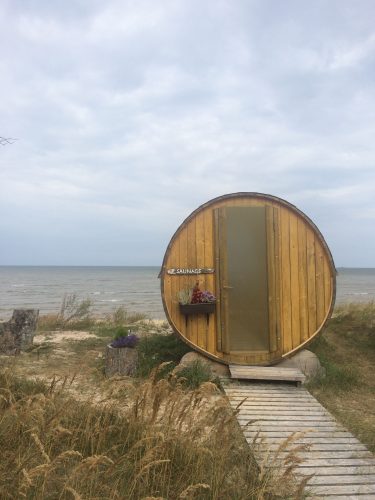
Photo by Gunta Kļava
According to the entrepreneurs, interest in Livonians is great. Depending on the level of knowledge of each entrepreneur tourists are provided with the necessary information – experts are able to provide broad and interesting information, from the general basics to personal stories about the Livonian coast, villages, traditional way of life, each one’s family, culture, etc. Entrepreneurs pointed out that even a small amount of easy-to-understand informative materials, specifically about Livonian culture and the Livonian coast, would be very necessary, especially considering (as pointed out by some) that the general tourism handouts and maps of the county or region are rather incomplete in terms of information quality as well as quantity.
At present, the information visible in the environment is insufficient, sporadic and without a common visual concept of the Livonian coast, moreover, it is often obsolete and faded and also informatively incomplete in Livonian, Latvian or other languages. This would be one of the first tasks in preserving the Livonian heritage, thus ensuring mutual benefit – the development of tourism and the preservation and development of culture.
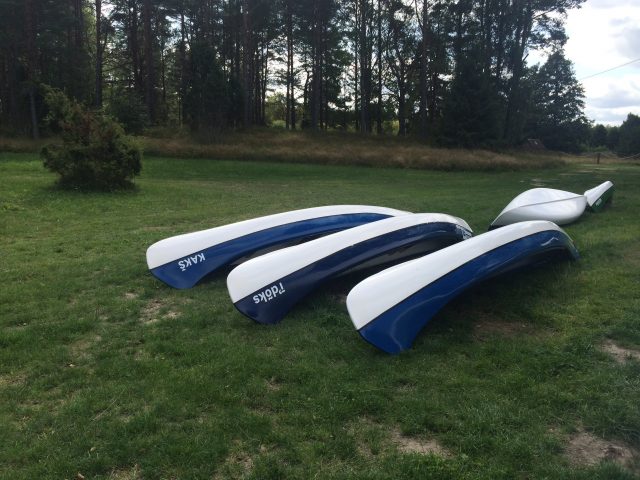
Photo by Gunta Kļava
The Livonian flag and its colours are the first to be mentioned by entrepreneurs as the strongest indicator of belonging to Livonian heritage. The green, white, and blue colours associated with Livonians have become recognisable as the Livonian colour code and it is these colours that should underpin any Livonian-related visual element, tourism development or Livonian coast development concepts and action plans, if any are made.
The second element, which is just as important but has a slightly different expression and function, is the Livonian language. Indeed, it is also a unifying and permeative element in business, which is also important for entrepreneurs for several reasons: it is an indicator of affiliation, it is an indicator of respect for language as one of the fundamental values of the people; it creates interest for tourists to search and learn more.
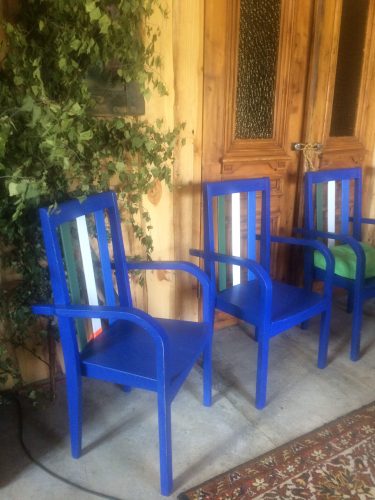
Photo by Gunta Kļava
After summarising the information provided by entrepreneurs about what would be most necessary in their business, it can be concluded:
- Entrepreneurs need very specific and individual assistance directly related to the introduction of the Livonian language, for example, to create a poster with the names of fish in Livonian or to receive help with a sign to put up at the entrance, or to create names of houses in Livonian, etc.;
- informative support is needed: preparation of informative materials that are short enough, but with high-quality and visually attractive content and style; the availability of informative materials that would include more information about the Livonians or a specific element of the heritage and would be available to anyone interested;
- a common tourism strategy or concept for creating the visibility of the Livonian coast.
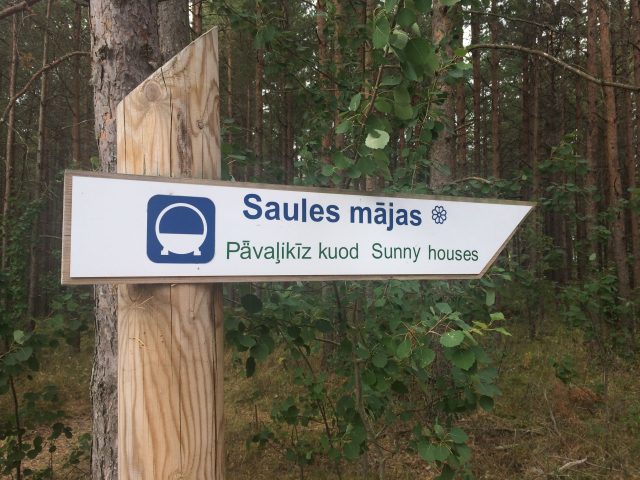
Photo by Gunta Kļava


